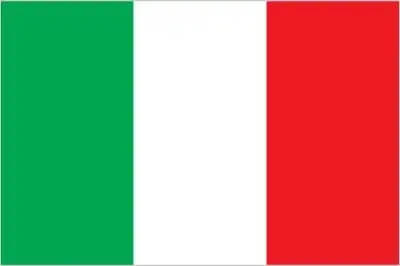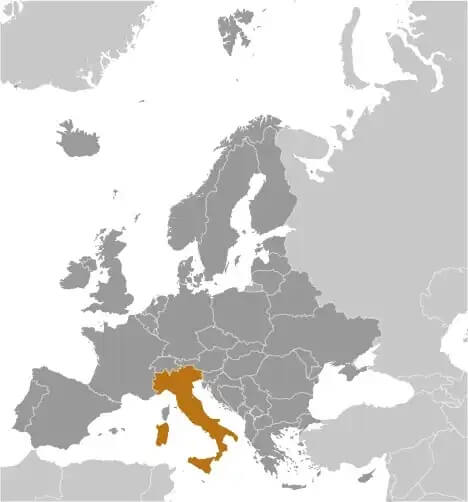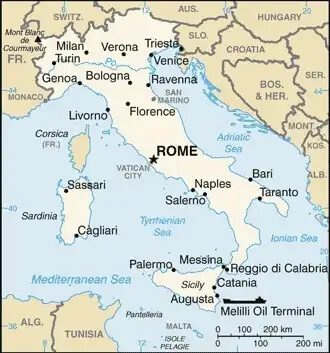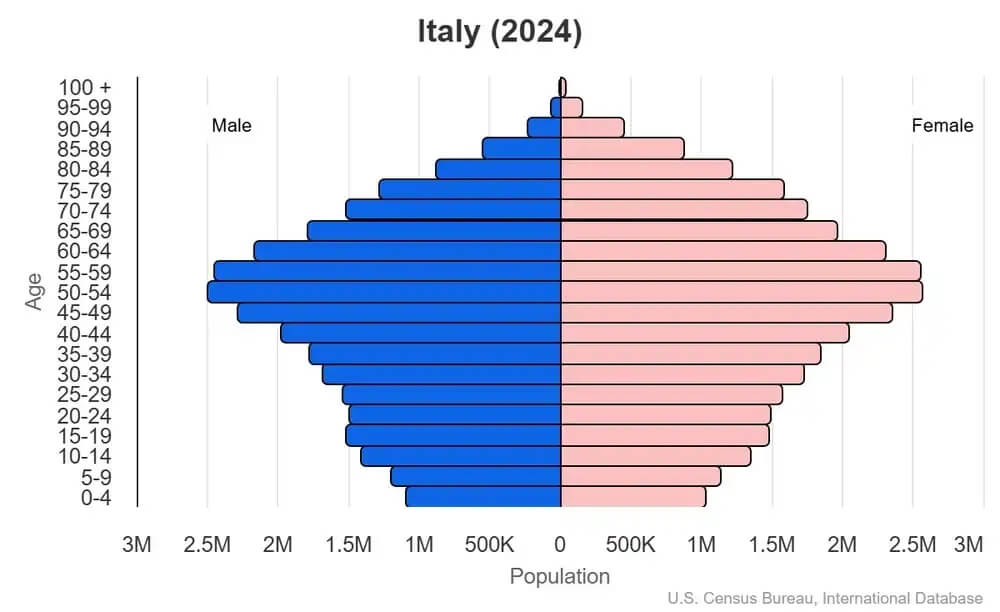World Book
Italy
World Book Index
77


With a score of 77, the country is ranked 25th out of 158 countries in the World Book ranking. (more information)
Introduction
Italy became a nation-state in 1861 when the regional states of the peninsula, along with Sardinia and Sicily, were united. Italy is a charter member of NATO, as well as the European Economic Community (EEC) and its successors, the EC and the EU. Italy joined the Economic and Monetary Union in 1999.
Neighboring countries
Austria - France - Holy See - San Marino - Slovenia - Switzerland
Geography
Area
total: 301,340 sq km
land: 294,140 sq km
water: 7,200 sq km
Climate
predominantly Mediterranean; alpine in far north; hot, dry in south
Natural resources
coal, antimony, mercury, zinc, potash, marble, barite, asbestos, pumice, fluorspar, feldspar, pyrite (sulfur), natural gas and crude oil reserves, fish, arable land
People and Society
Population
total: 60,964,931 (2024 est.)
Ethnic groups
Italian (includes small clusters of German-, French-, and Slovene-Italians in the north, Albanian-Italians, Croat-Italians, and Greek-Italians in the south)
Languages
Italian (official), German (parts of Trentino-Alto Adige region are predominantly German-speaking), French (small French-speaking minority in Valle d'Aosta region), Slovene (Slovene-speaking minority in the Trieste-Gorizia area), Croatian (in Molise)
Religions
Christian 80.8% (overwhelmingly Roman Catholic with very small groups of Jehovah's Witnesses and Protestants), Muslim 4.9%, unaffiliated 13.4%, other 0.9% (2020 est.)
Population growth rate
-0.08% (2024 est.)
Government
Government type
parliamentary republic
Capital
name: Rome
Executive branch
chief of state: President Sergio MATTARELLA (since 3 February 2015)
head of government: Prime Minister Giorgia MELONI (since 22 October 2022); the prime minister's official title is President of the Council of Ministers
Diplomatic representation in the US
chief of mission: Ambassador Marco PERONACI (since 5 September 2025)
Diplomatic representation from the US
chief of mission: Ambassador Tilman J. FERTITTA (since 6 May 2025); note - also accredited to San Marino
Economy
Economic overview
high-income, core EU economy; strong services, manufacturing, and tourism sectors; modest growth supported by net exports, low inflation, and public investments via EU funds; tight labor market with aging workforce and shortages in specialized skills; high public debt levels
Real GDP (purchasing power parity)
$3.133 trillion (2024 est.)
$3.11 trillion (2023 est.)
$3.088 trillion (2022 est.)
Real GDP per capita
$53,100 (2024 est.)
$52,700 (2023 est.)
$52,300 (2022 est.)
Exports
$778.898 billion (2024 est.)
$774.311 billion (2023 est.)
$737.083 billion (2022 est.)
Exports - partners
Germany 11%, USA 11%, France 10%, Spain 5%, UK 5% (2023)
Exports - commodities
packaged medicine, garments, cars, refined petroleum, vehicle parts/accessories (2023)
Imports
$717.278 billion (2024 est.)
$739.646 billion (2023 est.)
$775.518 billion (2022 est.)
Imports - partners
Germany 15%, France 9%, China 8%, Netherlands 6%, Spain 5% (2023)
Imports - commodities
natural gas, crude petroleum, cars, packaged medicine, garments (2023)
Human Development Index
The country's Human Development Index (HDI) is 0.915, ranking it 29th out of 193 countries tested. (more information)
World Happiness Report
The World Happiness Report ranked the country 41st out of 158 countries tested with a score of 6.346. (more information)



